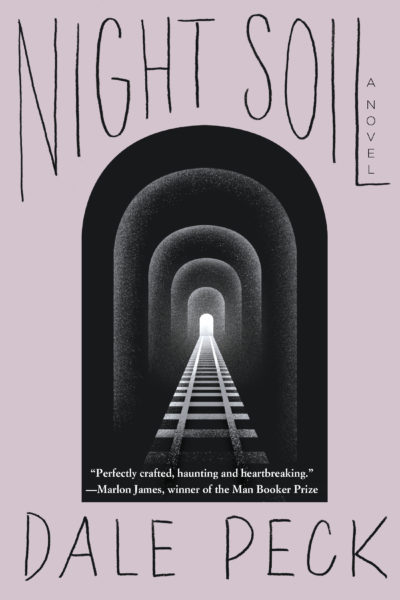I was mesmerized and astounded by Dale Peck‘s debut fiction, the homoerotic variations Martin and John. I probably would have liked Laws of Enclosure more if I wasn’t comparing it to M&J. After even more disappoint work, I liked his YA novel Sprout, but found little to enjoy in Night Soil. Alas, the book is an unmesmerizing amalgam of stories about an eccentric lineage, uniformly perfect pots, and an unbeautiful gay son coming of age. In that his grandfather built septic tanks for his ex- (or not so ex-) slave workers, I don’t understand the title, having made sure it has not been used before as a metaphor for coal or for quicksand.

Dale Peck said: “My mother died when I was very young, and my father remarried several times. I tend to write about mothers as ideas rather than people, and fathers as overpowering presences.” This is not the case in Night Soil, in which the father is long gone and the mother raises the narrator, or at least he grows up mostly around her—she wanders off for extended times. He knows no other family members, including the fraternal uncle from whom he inherits $400K.
The fortune on which a reactionary Tennessee academy relies stems from coal, though during the youth of the narrator, Judas Stammers, that waning fortune was supplemented by the fortune his mother’s pots brought in. Dixie considered herself a “potter,” not an “artist,” though some art world journalists publicized her invariant coiled (like ancient Native American ones, she eschewed a pottery wheel) pots and collectors paid large sums for them.
Her son, half of whose face and torso have a very prominent birthmark, is a self-deprecating very sexually receptive youth, who eventually is prized by a black boy who attends the Academy. Before that, Judas, offered his orifices, the rest of his body not visible, knowing nothing, not even their appearances, of his many penetrators.
(“It wasn’t that they didn’t want to talk to me. They didn’t want to be talked to—to be ousted to themselves, let alone society, as faggots—and once they’d shot their loads shame and disgust hurried most of them from the rest stop with the same urgency with which lust had dragged them there” (p. 144).
There is a great deal about Dixie’s eccentric robber baron father, Marcus Stammers, remaking the landscape and designing the academy mostly attended by the children of his former slaves. And a very long sort of Zen parable appended to the book.
I find it difficult to image readers who will be interested in all four (Judas, Dixie, Marcus, and the man circling in the snow) of these stories. I was not very interested in any of them. I was expecting a novel of the art world, which this is not, though the cover blurb begins with “A novel about art” and continues with” genius,” which is also dubious.
© 18 July 2018, Stephen O. Murray

